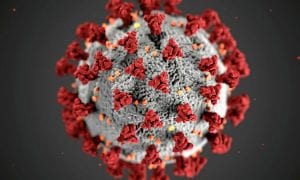WESTFIELD- Public Health Director Joe Rouse said Wednesday that Westfield remains one of several communities in Hampden County considered a high risk for Eastern Equine Encephalitis (EEE) .
The Massachusetts Department of Public Health says that the risk for EEE exists until the first hard frost can kill off enough of the mosquito population for the winter. The area has already received at least one frost, yet the high risk designation remains. Rouse said that he thinks a couple of good frosts are necessary for the actual risk to subside.
Health Inspector Thomas Hilbert said that he thinks it didn’t get quite cold enough last weekend when the frosts came through. In addition, Monday’s temperatures reached past 70 degrees before dropping back to colder temperatures throughout the week. This weekend, temperatures are expected to sit in the mid 60s.
“We’re still at high risk. I spoke this morning to say: Don’t let your guard down. We’re still on limitations for nightime school sports activities,” said Rouse, “Everyone is really chomping at the bit to have a Friday night football game and I totally get it, but at this time, until we are off the high risk category we have to discourage that.”
State public health guidelines suggest avoiding being outside from dusk to dawn while the risk remains. That period of time is when mosquitoes are most active.
Rouse said that the schools in the city, including Westfield State University, have been cooperating with the guidelines and limiting nighttime outdoor activities.
Rouse said that he does not expect the state to begin spraying chemicals to kill off mosquitoes, as that would require the risk level to be raised to critical, which is unlikely this late in the year. He said he thinks Westfield is at high risk partially due to two reports of people contracting EEE in Hampden County. At least one Hampden County resident has died from the illness.
The state testing for EEE will continue until Oct. 11. It is unclear if the risk will be lowered at the end of that period.
Rouse noted that EEE and West Nile Virus are cyclical, meaning that outbreaks like this occur on a regular basis with few reports of the virus in between. In the case of EEE, Rouse said, that cycle is a period of 10 years. He said that the current outbreak comes roughly a decade after another outbreak in the area. He is unsure if the disease will return next year as a result, but noted that they will be prepared if it does.





